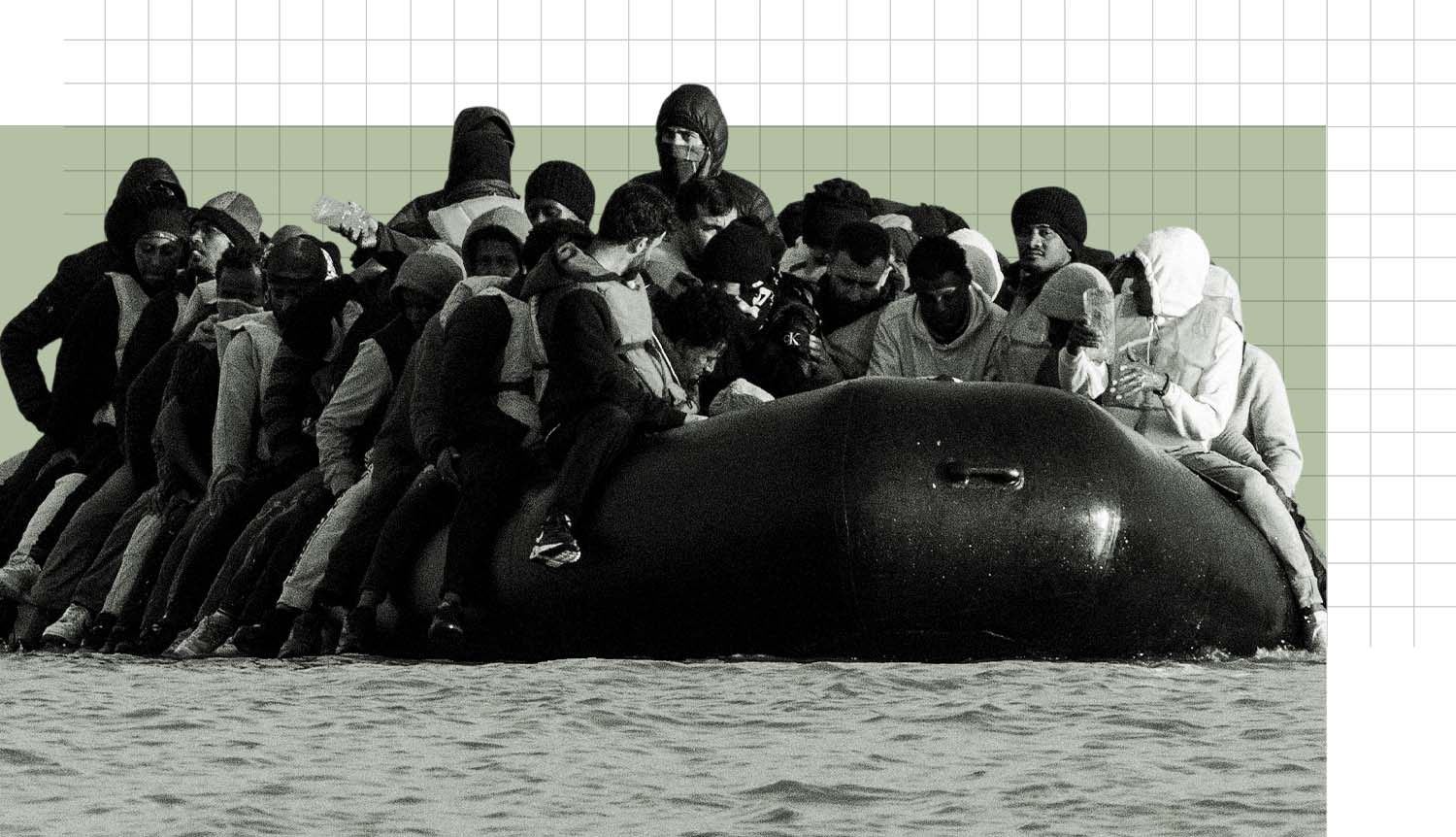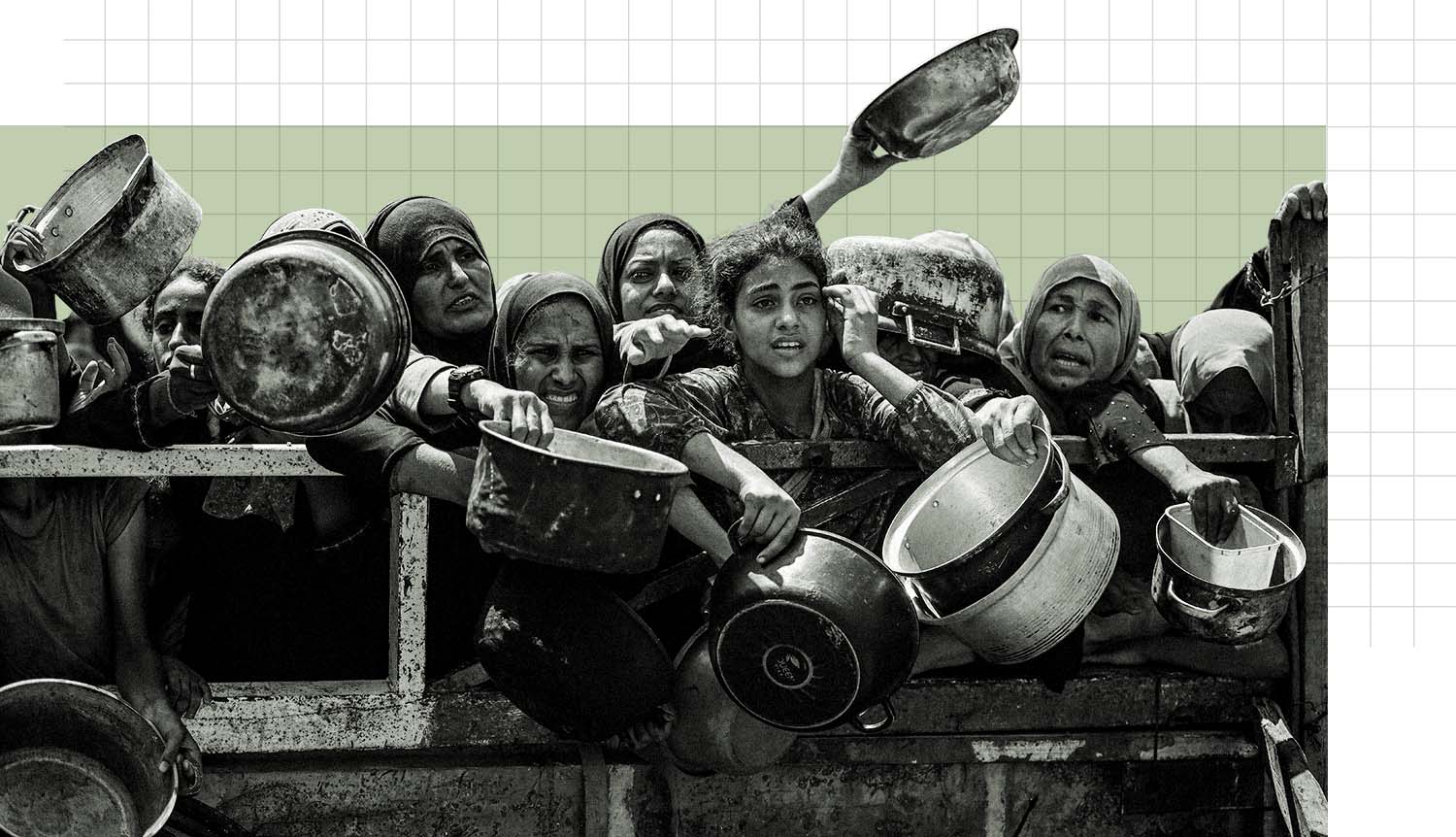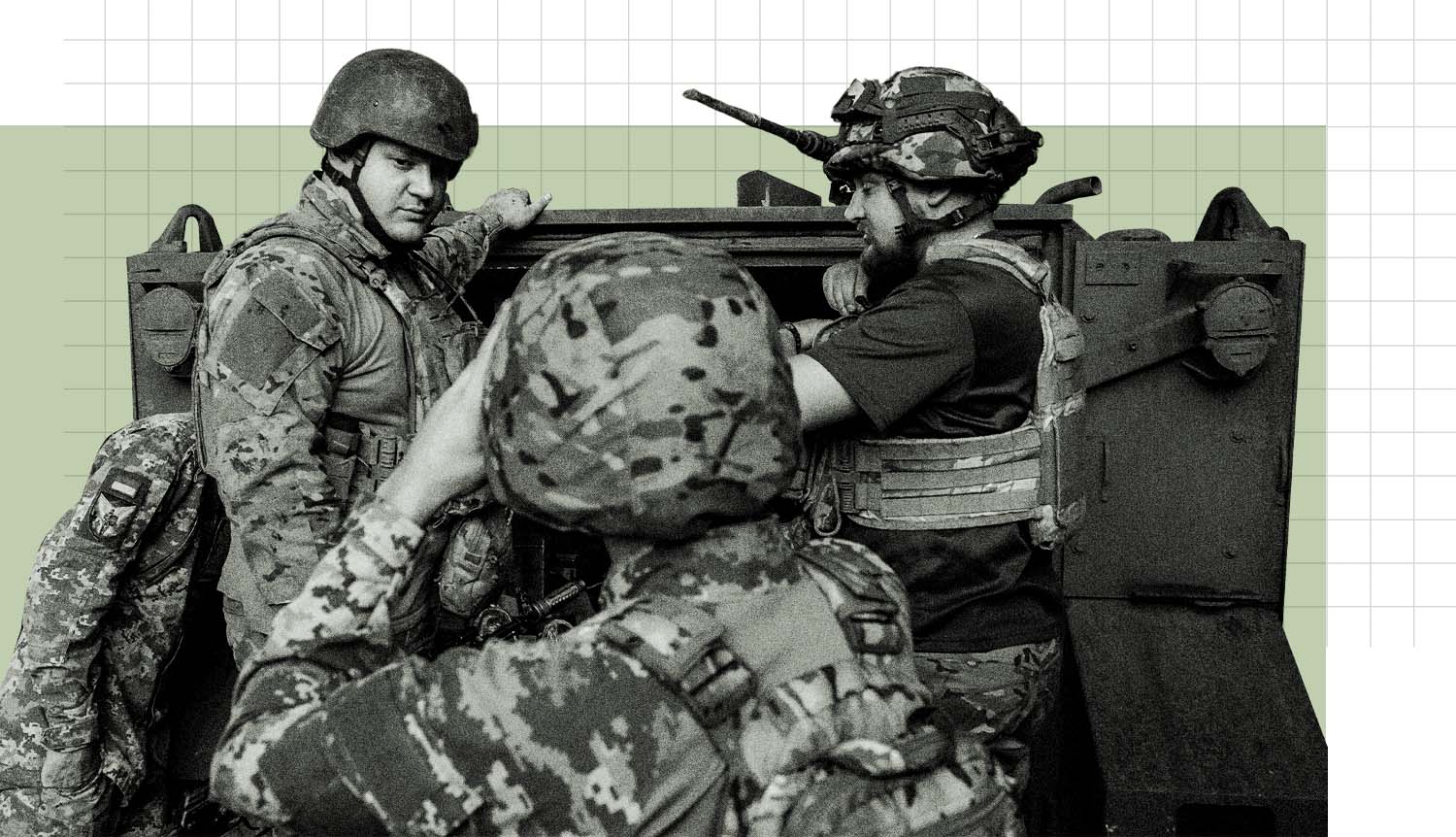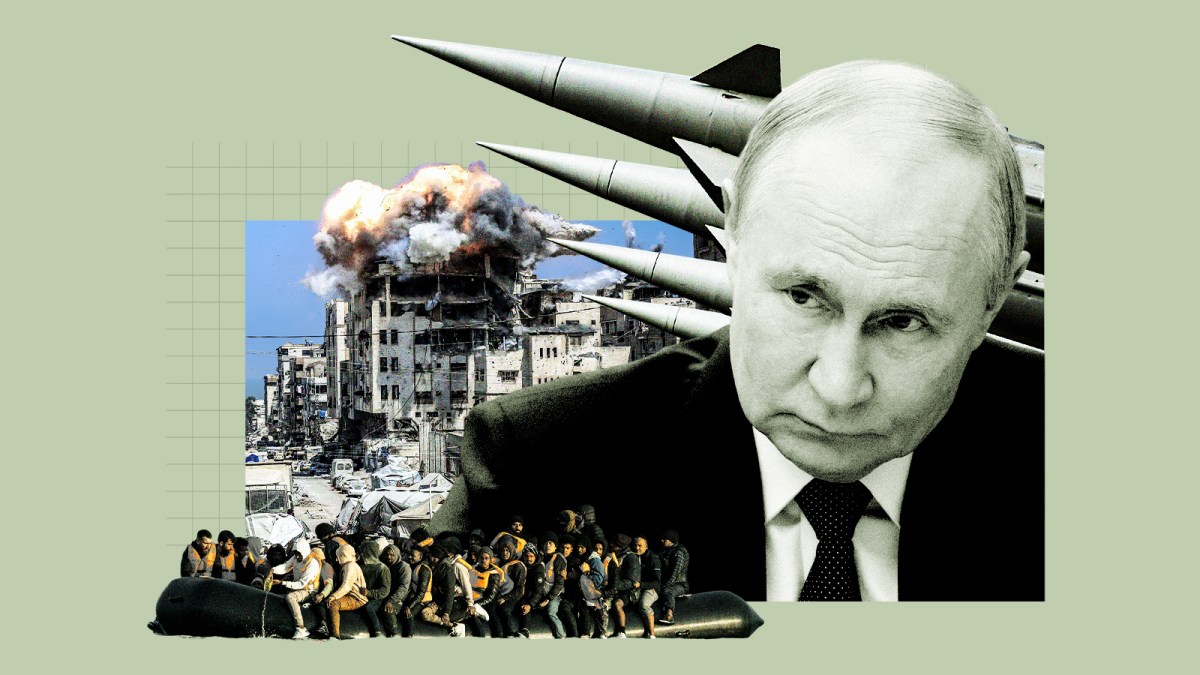Britons see the world in 2025 as “chaotic” and “dangerous” as global conflict reaches the highest level since the end of the Second World War, a poll shows.
They believe the UK’s power is diminishing while countries such as China and Russia — and the United States — are growing in stature and might, the study of more than 2,000 people by More in Common, the think tank, found. The pollster also carried out a focus group in Plymouth.
Britons also feel buffeted by turbulence at home and are growing increasingly frustrated at the inability to stop record numbers of small boats from making the perilous journey across the Channel.
“For many Brits the international picture is an ugly one, with the public worried the world around us has become more chaotic and more dangerous and many now question what Britain’s role on the global stage is any more,” Luke Tryl, the executive director of More in Common, said.
Small boats
Nearly 20,000 migrants crossed the Channel to the UK in the first six months of this year, a rise of almost 50 per cent on 2024 and a record for the first half of a year. As he arrived in Scotland on Friday at the start of a four-day visit, President Trump said immigration was “killing Europe” and it had to “get [its] act together”.
Britons appear to share his concerns. According to the poll, six in ten Britons did not think France was doing enough to stop the boats. Sixty-nine per cent of respondents said the Royal Navy should be involved, compared with 18 per cent who said it should not.
This view has been supported by Nigel Farage, the Reform UK leader. “The ultimate threat is you literally tow the boats back to France if it came to it,” he said last month.
According to UN and international conventions, states are allowed to pick people up from boats if they are “found at sea in danger of being lost” but they cannot be taken to another state without its agreement.
When asked the main reasons people crossed the Channel in small boats to get to the UK, voters agreed with President Macron that it came down to “pull factors”. Macron has urged Sir Keir Starmer to crack down on the UK’s black market for labour and welfare payments. According to the poll, 54 per cent believed the most likely reason people came was to access the UK’s welfare system. This was followed by claims it was easier to gain asylum in the UK than elsewhere (49 per cent) and because they were fleeing conflict in other countries (37 per cent).
In the focus group, Peter, a dockyard manager from Plymouth, described Britain as a “soft touch” because as “soon as [migrants] land on our shores, they’re entitled to healthcare, food and a roof over their head. There won’t be many countries in the European nation[s] that will offer them that. I think we need to harden our borders and take advice maybe from America or Australia, which I appreciate. Seems harsh, but the country is on its knees.”
Britain’s standing in the world
As the country grapples with these issues at home, four in ten voters believed the UK was losing influence abroad. This feeling was strongest among those who voted Reform or Green last year. Voters who supported Labour were the only group where more said the UK was becoming more powerful.
China was the country most widely perceived as gaining power (67 per cent), followed by the United States (50 per cent) and Russia (39 per cent).
• Matthew Syed: Wisdom of the crowd recognises the tectonic shifts
Overall, the US was thought to be the most powerful country in the world (72 per cent), followed by China (54 per cent) and Russia (37 per cent). The UK was in fifth place (17 per cent), just behind the European Union (18 per cent). Israel was joint sixth with Saudi Arabia (7 per cent).
Younger people were more likely to see the UK as one of the most powerful countries in the world. Twenty-three per cent of 18 to 26-year-olds thought so, compared with 4 per cent of over-60s.
The top words used by the public to describe the world in 2025 were chaotic, dangerous, mess and bad, according to a word cloud. Uncertain, frightening, unstable and broken also feature.
Yet despite this, there was little appetite for Britain to retreat. When asked about the circumstances for UK military involvement, the public tended to show strong support in most of the scenarios presented. The strongest backing was found if the UK or an ally was directly attacked by another country’s military or to support a UN peacekeeping mission.
The respondents were relatively split on whether the UK should reintroduce compulsory national service. Forty-six per cent said it should not be introduced, while 43 per cent thought it should be. Eighteen to 24-year-olds were particularly against it, with 64 per cent opposed, while 25 per cent approved.
The biggest threat to the UK was judged to be cyberattacks, perhaps unsurprising after weeks of stories about hacks into business, including Marks & Spencer and government databases. Islamic terror was judged to be the second biggest threat, followed by nuclear conflict. Younger people were more likely to see far-right terror and military and nuclear conflict as the greatest challenge than those who were older.
Out of all the countries asked about, only three were more commonly seen as enemies of the UK than as allies. Thirty-three per cent said China was an enemy, 51 per cent said Iran was and 65 per cent Russia.
Commonwealth anglophone countries were more likely to be seen as allies. Among European counties, France was seen as the UK’s closest ally.
However, the number of people viewing the US this way has slightly increased in recent months. Fifty per cent of Britons saw it as such, up 7 per cent since April after the fallout between Trump and President Zelensky in the Oval Office.
Despite Trump being invited for an unprecedented second state visit in the autumn, the public were divided on the special relationship, with 38 per cent saying it persisted, while 36 per cent said it no longer existed and 15 per cent saying it never did.
Gaza and Israel
With Gaza in the grip of a humanitarian crisis, increasing numbers said they sympathised with the Palestinian side in the conflict with Israel. According to the poll, 29 per cent said they sympathised more with the Palestinian side, compared with 27 per cent who sympathised with neither, 16 per cent who supported both sides equally, 15 per cent who sided with Israel and 14 per cent who did not know.
While the picture remained mixed, it showed an 11-point increase in support for the Palestinian side since November 2023, a month after Hamas attacked Israel on October 7, killing about 1,200 people and taking more than 250 hostages. This was the highest level of support for this side recorded by More in Common. While the number of those expressing more support for Israel varied by age, those aged 18 to 24 were particularly likely to express more sympathy for Palestine (45 per cent).
Half of Britons did not believe Hamas represented the view of ordinary Palestinians, compared with 16 per cent who did, up three points since October 2023.
However, 41 per cent thought it right that Palestine Action, the protest group, had been proscribed, while 29 per cent said it was wrong. Those who sympathised more with the Palestinian side of the conflict were more likely to regard it as wrong (63 per cent).
Meanwhile, 57 per cent thought it right that the punk rap act Bob Vylan had been dropped by their agent and other music festivals after chanting “death to the IDF” [Israel Defence Forces] at Glastonbury last month.
As the UK and 27 other countries condemned the “drip-feeding of aid and the inhumane killing of civilians” seeking food and water in Gaza, 48 per cent of those surveyed thought Israel’s response to the conflict had been disproportionate, compared with 28 per cent who thought that it had been proportionate. Twenty-four per cent did not know.
Although the UK suspended dozens of arms licences to Israel last year, many said the measures did not go far enough. Last week nearly 60 MPs and peers called for a full embargo on arms exports. This was supported by 41 per cent, who said the UK should not allow the export of any arms to Israel, while 23 per cent said that only arms for defensive purposes should be exported and 14 per cent said weapons for offensive and defensive purposes should be exported.
Six in ten voters said they did not think there would be peace in the Middle East in their lifetime, compared with 25 per cent who thought there would be.
Sixty-seven per cent said Israel had a right to exist, while 10 per cent said it did not. Green voters (12 per cent) and those aged 18 to 24 (21 per cent) were groups that were more likely than average to say it did not.
Britons are forming opinions about each other based on their views of the conflict. Thirty-four per cent said they had a negative view of people who posted on social media about standing up for Israel and 22 per cent had a negative view of people who posted on social media about standing up for Gaza.
Nineteen per cent said they had a negative opinion of Muslim people and 10 per cent said the same about Jewish people. Younger people were more likely to acknowledge these anti-Jewish views, whereas older people were more likely to acknowledge these anti-Muslim views, the poll showed.
Twenty-four per cent said the UK was unsafe for British Jews and 26 per cent for British Muslims.
Ukraine
Support for Ukraine remained strong. Seventeen per cent thought we should stop supporting Kyiv now and 51 per cent believed we should keep up support until the territory lost from the start of the war with Russia was won back.
People were sceptical of the idea Ukraine should make any concessions to Russia to end the war; they were more likely to see every one of the scenarios proposed, including giving up Crimea, as unacceptable than acceptable.
Fifty-four per cent would back using British troops as peacekeepers to support a ceasefire and 19 per cent would oppose it.
According to the poll, the most important way Britain could show its support for Ukraine was in providing military aid (24 per cent), followed by humanitarian aid (17 per cent), sanctions against Russia (14 per cent) and taking in Ukrainian refugees (6 per cent).
Thirty-six per cent thought the amount the government was spending on defence this year (2 per cent of GDP, rising to 2.5 per cent by 2027 and possibly 5 per cent by 2035) was about right. Those who worried more about the war in Ukraine were more likely to say defence spending was too little, whereas those who worried more about the conflict in the Middle East were more likely to say it was too much.
Tryl, from More in Common, said: “The erratic second Trump presidency, Russia’s invasion of Ukraine, concern for civilians in the Middle East and its implications for community relations here at home, our inability to stop Channel crossings… leave the public more fearful and less confident about our safety and security.
“Yet despite this, there is little appetite for the UK to retreat to become ‘Little England’. Most Brits want us to back Ukraine until they have pushed Russia back and they are prepared to see troops on the ground to police a peace deal and most would be prepared for us to use military force to defend an ally.”
The poll of 2,113 British adults (excluding Northern Ireland) was carried out by More in Common exclusively for The Sunday Times between July 22 and 24
